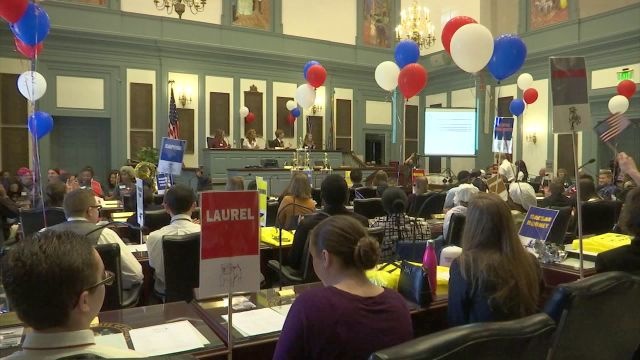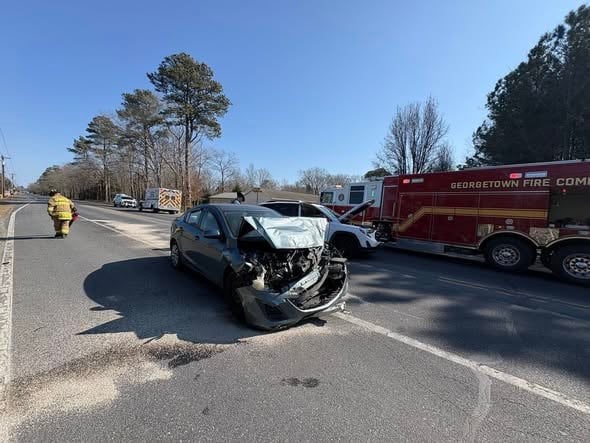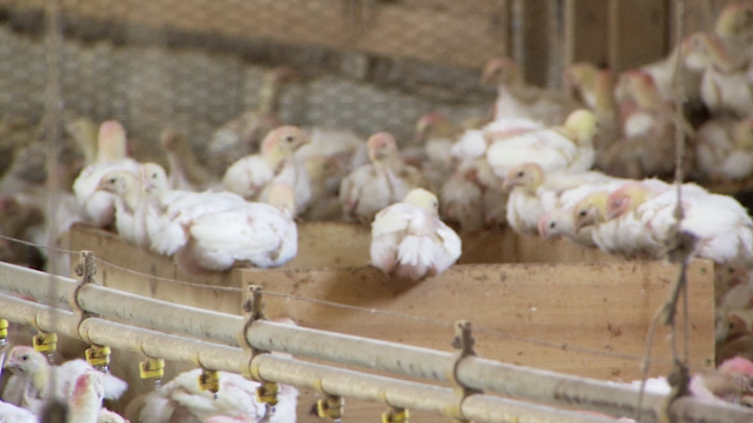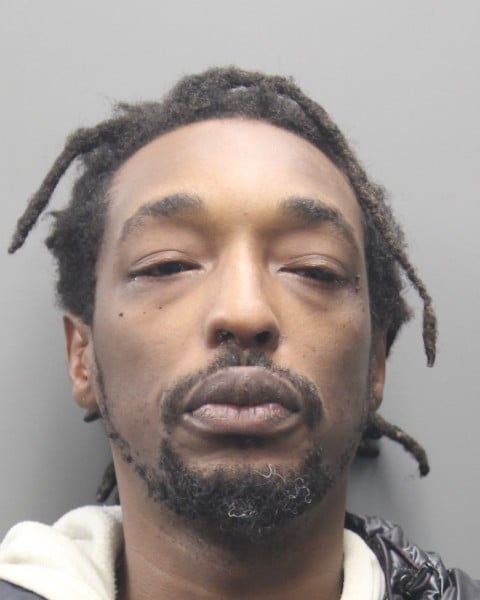Students cast in their ballots for the Delaware Student Mock Election Convention

Dozens of student representatives from elementary, middle, and high schools across the state of Delaware let their voices be heard Friday in Dover for the Delaware Student Mock Election Convention.
The student reps announced the winning candidates in their districts whether for president, governor, or other state office holders giving these future voters a taste of what it’s like during an election.
“Every vote does count and I think the young people in the room are beginning to see that and they are going to spread that to other people as well,’ says Caesar Rodney District student rep Grace Collins.
She adds,” Judging by how close my district was in particular anyone can win the election.”
Although this mock election is held every election year to get students excited about the election process and their future role, Governor Markell says this one is different.
“I was wondering how this one might go because this has been such a discouraging election cycle but to listen to these students to see the energy, the excitement, I’m very encouraged,” explains Gov. Markell.
Despite the fact that these students won’t actually be voting in the election this year, some of the student reps 47 ABC spoke with said they learned that one vote is better than none.
Macee Turnbaugh, representing Laurel School District says, “Anyone who’s younger and thinks they don’t have a say, you do you have voice, and you can use that to affect how the election goes.”
Seaford School District student rep Stonanaj Domond explains, “One person can change, make a whole difference so I would encourage everyone to vote.”
Even though these kids aren’t actually voting in this year’s election, they took it as seriously as any of age voter should doing research on the candidates before casting their ballots.
Salisbury University Political Science Professor, Sarah Surak, tells 47 ABC that it’s crucial for voters to do their homework but often what voters think is research isn’t.
She says that many voters who are strongly affiliated with a certain party will always vote the party line.
Other voters, she says, will watch the debates and delve into candidates policies and beliefs but may only be getting it from one source seeking out coverage that confirms their beliefs while ignoring contradictory information.
And for young voters, she says that it’s not surprising to see them vote based on their parents votes because they haven’t yet formulated their own opinions.
Future voter, 17-year-old Grace Collins won’t be voting in this election, but did what Professor Surak says all voters should do.
“I’ve been trying to stay away from the commercials and anything like that. I’ve been sort of myself personally looking at the issues, I’ve looked at each candidate kind of honestly what they’ve said to each other I watched the debates, I’ve read their websites, I’ve looked at Twitter,” explains Collins.
Collins says she is practicing for the next election when she can vote.


